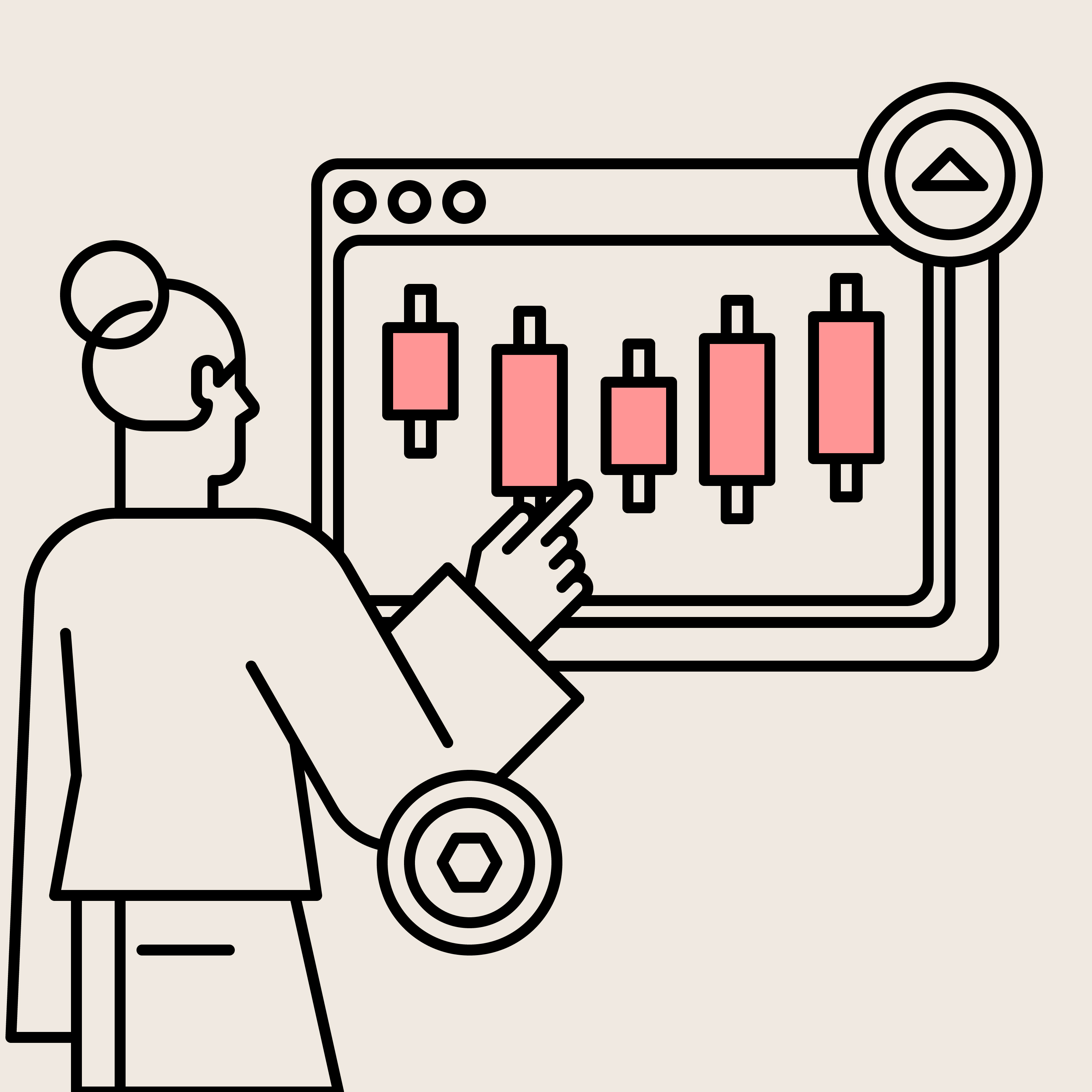The Policy Layer

Ep 42: US Rep. Warren Davidson (R-OH-08)
Congressman Warren Davidson shares insights on token classification, self-custody, and bipartisan blockchain policy. Tune in for a candid conversation about crypto innovation and legislative reform in the United States. 🎧 Listen on Spotify and Apple Podcasts

Ep 39: Tokenizing Securities for Decentralized Finance Applications
Professor Andreas Park from the University of Toronto discusses how blockchain can transform the trading and management of securities. In this episode, he shares his research on overcoming the complex challenges of integrating stocks, dividends, and voting rights into decentralized systems, offering insights into the future of finance. Learn more in his paper: https://edas.info/showPaper.php?m=1571031828

Ep 38: Learning from DeFi. Would Automated Market Makers Improve Equity Trading?
Andreas Park (University of Toronto) and Katya Malinova (McMaster University) discuss their research on how automated market makers (AMMs) from DeFi could revolutionize equity trading. We explore the potential savings, challenges, and future of finance in a digital age. Check out their paper below: Learning from DeFi: Would Automated Market Makers Improve Equity Trading?

Ep 36: US Rep. Yadira Caraveo (D-CO-08)
Congresswoman Yadira Caraveo shares insights on navigating the complex world of digital asset regulation and bipartisan collaboration. She highlights the conversation highlights the FIT21 bill, Colorado’s leadership in tech, and the need for financial inclusion in modern legislation. 🎧 Listen on Spotify and Apple Podcasts

Ep 35: US Rep. Shri Thanedar (D-MI-13)
Congressman Shri Thanedar (D-MI-13) discusses his early adoption of cryptocurrency and emphasizes the transformative potential of blockchain technology. He highlights the importance of financial inclusion, arguing that digital assets can democratize access to financial services. 🎧 Listen on Spotify and Apple Podcasts

Stablecoin Runs and the Centralization of Arbitrage
Yiming Ma from Columbia Business School and Anthony Zhang from UChicago explore the intricacies of stablecoins and their impact on financial stability. Learn about the critical role of arbitrage in maintaining price stability and the potential risks associated with these digital assets. Check out their paper here.

Ep 31: The Impact of Blockchain and AI on the EU’s Financial Landscape
Dimitrios Psarrakis (Financial Economist and co-founder of Value Verse) provides expert insights on blockchain regulation and its implications for financial competitiveness in the EU. He explores the intersection of blockchain, AI, and financial innovation, emphasizing the importance of education and collaboration in shaping the future of finance.

Ep. 26: Global Blockchain Trade Associations and 2024 Policy (Part 1)
Join Marina Markezic (EU Crypto Initiative) , Ron Hammond (Blockchain Association), Tommaso Astazi (Blockchain For Europe), and Cody Carbone (Digital Chamber) as they delve into the complexities of blockchain regulation and its impact on global policy. Explore how trade associations are shaping the future of technology governance.

Ep 23: Shaping the Future of Currency: the Digital Dollar
Chris Giancarlo (Chamber of Digital Commerce and former CFTC commissioner) sheds light on the role of privacy, economic liberty, and leadership in navigating the ever-changing landscape of digital innovation and its impact on global economies.

Ava Labs x CBER Ep 5: Loss-Versus-Rebalancing (LVR) at Decentralized Exchanges
This episode discusses the costs of liquidity provision at Decentralized Exchanges. Ciamac Moallemi (Columbia University) explains that liquidity providers at a Decentralized Exchange always face a loss relative to an asset portfolio that actively rebalances to match the asset weighting of the Decentralized Exchange at all times. This loss, known as Loss-Versus-Rebalancing (LVR, pronounced 'Lever'), is the primary cost of liquidity provision. Design refinements to mitigate this cost are discussed. Paper: Automated Market Making and Loss-Versus-Rebalancing

Ep 18 Why Do We Need A Digital Euro?
Following our latest episode on the digital pound, we keep exploring the future of money by looking at the European Union’s ambitious plans for a euro CBDC. Back in June, the European Commission proposed a legislative framework for a retail digital euro, and its potential is now being assessed by the European Central Bank (ECB). In just a week, the ECB will decide if the project will move from an ‘investigation phase’ to a ‘realization phase’, where technical solutions will be developed and tested. The EU is determined to be a frontrunner in CBDC policy, and has made it clear that any form of digital public money will reflect its shared values of privacy, security, and inclusiveness. Yet, reactions to the Commission's proposal have been mixed. Concerns have been raised over policymakers being able to decide what Europeans can spend their money on, or having access to their personal data. Some foresee the decline of cash, while others simply don’t see the difference between using a digital euro and existing mobile payment apps. If Europe wants to make central digital currency a reality, it will need to bring on board not only retail users – but also banks, merchants, businesses, and technology providers. Get up to speed on what the digital euro could look like by tuning into our conversation with Anne-Sophie Gógl, Board Member of the Digital Euro Association, and Peter Kerstens, Adviser for Technological Innovation and Cybersecurity at the European Commission.

Ep 16 Why do we need a digital pound?
Welcome back to another exciting episode of the Owl Explains podcast, where we delve deep into all things blockchain, Web3, and more. Today, with Jannah Patchay (Executive Director, Digital Pound Foundation and Director + Regulatory & Market Structure Advisor, Markets Evolution), Varun Paul (Director for CBDCs and FMI at Fireblocks) and our moderator Emma Pike (Owl Explains team member and Consultant at H+K Strategies), we discuss CBDCs, delving deep into the Digital Pound. Over the past decade, the financial world has witnessed a seismic shift towards digital currencies, driven by advancements in technology and the need for more efficient, secure, and accessible forms of money. While Bitcoin and other cryptocurrencies have often stolen the spotlight, today's episode will shine a spotlight on a digital currency that's closer to home: the Digital Pound. As countries around the globe grapple with the idea of central bank digital currencies (CBDCs), the United Kingdom has been at the forefront of this digital revolution. The Digital Pound, proposed by the Bank of England, promises to reshape how we transact, save, and invest. But what exactly is the Digital Pound, and how does it differ from traditional forms of money? What does it require to be successful? And can it draw from any learnings from other already-introduced CBDCs? Whether you're a seasoned cryptocurrency aficionado or simply curious about the future of money, this episode promises to be an eye-opening journey you won't want to miss.